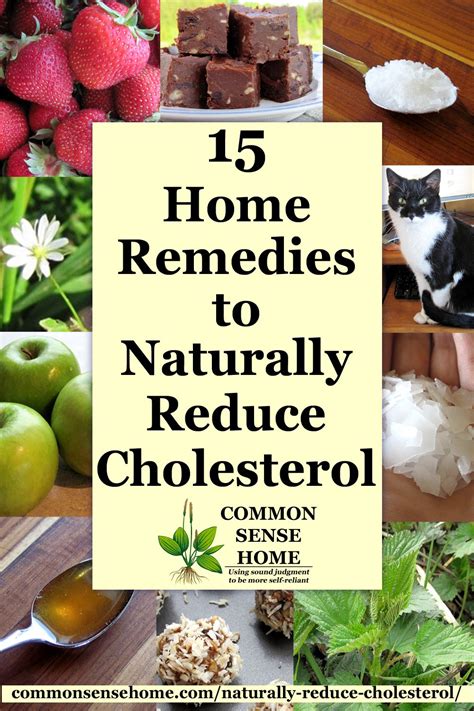How To Reduce Cholesterol Naturally: A Holistic Approach to Heart Health
High cholesterol is a silent threat, often showing no symptoms until it contributes to serious health problems. But the good news is you can take control of your cholesterol levels naturally, without relying solely on medication. This comprehensive guide explores effective strategies to lower your cholesterol naturally, promoting long-term heart health.
Understanding Cholesterol: The Good, the Bad, and the Ugly
Before diving into natural solutions, let's quickly understand cholesterol. Cholesterol isn't inherently bad; your body needs it for cell function and hormone production. However, high levels of LDL cholesterol ("bad" cholesterol) can clog arteries, increasing the risk of heart disease and stroke. Conversely, HDL cholesterol ("good" cholesterol) helps remove LDL cholesterol from your bloodstream. The goal is to maintain a healthy balance.
Key Factors Affecting Cholesterol Levels
Several factors contribute to high cholesterol, including:
- Diet: A diet high in saturated and trans fats significantly raises LDL cholesterol.
- Genetics: Family history of high cholesterol increases your risk.
- Lifestyle: Lack of physical activity and smoking are major contributors.
- Weight: Being overweight or obese often correlates with higher cholesterol levels.
- Underlying health conditions: Certain conditions like diabetes and hypothyroidism can affect cholesterol.
Natural Ways to Lower Your Cholesterol
Now, let's explore practical steps you can take to naturally reduce your cholesterol:
1. Dietary Changes: Fueling Your Body Right
What to Emphasize:
- Fiber-rich foods: Oats, beans, lentils, and fruits like apples and pears are excellent sources of soluble fiber, which binds to cholesterol and helps eliminate it. Consider adding a daily serving of oatmeal or a lentil soup to your diet.
- Heart-healthy fats: Incorporate foods rich in monounsaturated and polyunsaturated fats, like avocados, nuts, seeds, and olive oil. These fats can help lower LDL cholesterol and raise HDL cholesterol. Try swapping butter for avocado in your sandwiches.
- Plant sterols and stanols: These compounds found in certain foods and supplements can block cholesterol absorption. Look for fortified margarines or yogurts.
What to Limit:
- Saturated fats: Found in red meat, full-fat dairy, and processed foods. Choose lean meats and low-fat dairy options.
- Trans fats: Found in many processed foods, baked goods, and fried foods. Read food labels carefully and avoid foods containing partially hydrogenated oils.
- Cholesterol-rich foods: While dietary cholesterol's impact is less significant than previously believed, limiting consumption of organ meats and egg yolks is still advisable. Consider egg whites as a healthier alternative.
2. Embrace Regular Physical Activity
Regular exercise plays a crucial role in lowering LDL cholesterol and raising HDL cholesterol. Aim for at least 30 minutes of moderate-intensity exercise most days of the week. Find activities you enjoy, whether it's brisk walking, swimming, cycling, or dancing.
3. Maintain a Healthy Weight
Losing even a modest amount of weight can significantly improve your cholesterol levels. Combine a healthy diet with regular exercise to achieve and maintain a healthy weight. Consult a healthcare professional or registered dietitian to create a personalized weight-loss plan.
4. Quit Smoking
Smoking damages blood vessels and contributes to high cholesterol. Quitting smoking is one of the best things you can do for your heart health and overall well-being. Seek support from your doctor or a smoking cessation program.
5. Manage Stress
Chronic stress can negatively impact your cholesterol levels. Practice stress-reducing techniques such as yoga, meditation, or deep breathing exercises. Incorporate regular relaxation techniques into your daily routine.
6. Consider Natural Supplements (Consult Your Doctor First!)
Some supplements, such as plant sterols/stanols, fish oil (rich in omega-3 fatty acids), and red yeast rice, may help lower cholesterol. Always consult your doctor before taking any supplements, as they can interact with medications.
Monitoring Your Progress and Seeking Professional Advice
Regularly monitor your cholesterol levels through blood tests. This allows you to track your progress and make necessary adjustments to your lifestyle or treatment plan. It's crucial to consult with your doctor or a registered dietitian for personalized guidance and to discuss any underlying health conditions.
Remember, lowering cholesterol naturally is a journey, not a race. By adopting these healthy lifestyle changes and working closely with your healthcare provider, you can effectively manage your cholesterol levels and significantly reduce your risk of heart disease.
